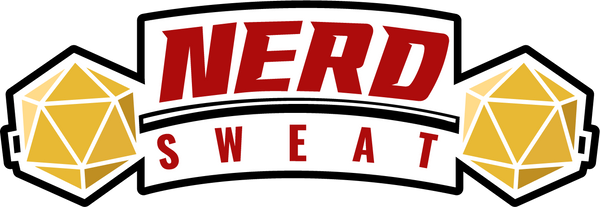
Understanding the Role of Nutrition in Strength Training for Older Adults
Strength training is a vital part of staying healthy and strong as we age, but it’s not just about lifting weights. Nutrition plays an equally important role in helping your body build and maintain muscle, especially for older adults. Proper nutrition can make the difference between a good workout and a great one, aiding recovery and promoting long-term muscle health. Here's how nutrition supports strength training for adults over 50, and what you can do to maximize your results.
Why Nutrition is Important in Strength Training
As we age, our bodies naturally lose muscle mass in a process called sarcopenia. Strength training is essential for slowing down this process and even reversing some muscle loss. However, to gain or maintain muscle, your body needs the right nutrients to repair and rebuild muscle tissue after workouts. Without proper nutrition, even the best strength training regimen may not yield the desired results.
Key Nutrients for Strength Training
1. Protein:- Protein is crucial for muscle repair and growth, making it the cornerstone of any strength training diet. After strength training, your muscles need amino acids (the building blocks of protein) to repair the small tears that occur during exercise.
- As you age, your body becomes less efficient at using protein, so you may need more than younger adults. Aim for about 1.2 to 1.6 grams of protein per kilogram of body weight each day.
- Best Sources: Lean meats, fish, eggs, Greek yogurt, legumes, and plant-based protein sources like tofu or tempeh.
- Carbs are your body’s primary energy source, fueling your workouts and helping you recover afterward. Carbohydrates replenish glycogen stores in your muscles, which are depleted during exercise.
- Older adults can benefit from consuming complex carbs, like whole grains, fruits, and vegetables, which provide sustained energy without blood sugar spikes.
- Best Sources: Whole grains (brown rice, quinoa, oats), fruits, vegetables, and legumes.
- Healthy fats are essential for hormone production, including hormones that regulate muscle growth, such as testosterone. Fats also help reduce inflammation in the body, which is important for recovery after strength training.
- Best Sources: Avocados, nuts, seeds, olive oil, and fatty fish like salmon or mackerel.
- As you age, maintaining bone health becomes increasingly important, especially if you’re incorporating weight-bearing exercises. Calcium and vitamin D work together to support strong bones.
- Best Sources: Dairy products (milk, cheese, yogurt), leafy green vegetables, and fortified foods like orange juice or plant-based milk. Sun exposure and fortified foods are key for vitamin D.
- Don’t forget about water! Staying hydrated is essential for optimal muscle function and recovery. Dehydration can lead to fatigue and muscle cramps, hampering your workouts.
- Drink water before, during, and after exercise, and include hydrating foods like fruits and vegetables in your diet.
Timing Your Nutrition for Strength Training
The timing of when you eat is almost as important as what you eat. For older adults, ensuring proper nutrient intake around your workouts can help maximize muscle recovery and growth.
- Pre-Workout: A balanced meal with protein and complex carbohydrates 1–2 hours before exercise will provide sustained energy for your workout. If you’re short on time, a small snack like a banana with peanut butter or Greek yogurt with berries can give you the boost you need.
- Post-Workout: After strength training, your muscles are primed to absorb nutrients, particularly protein and carbs. Consuming a post-workout meal or snack within 30–60 minutes of finishing your workout will help with muscle repair and replenish glycogen stores. A protein shake, a turkey sandwich, or a smoothie with protein powder and fruits are great options.
Supplements: Do You Need Them?
For most older adults, it’s best to get your nutrients from whole foods. However, supplements can help if you struggle to meet your nutritional needs through diet alone. Here are some supplements that may be beneficial:
- Protein powders: Whey or plant-based protein powders can help ensure you’re getting enough protein, especially if you’re not eating large amounts of meat or dairy.
- Vitamin D and calcium: If you’re not getting enough from your diet or sun exposure, supplements can help maintain bone health.
- Creatine: Some research shows that creatine may help older adults improve muscle mass and strength when combined with resistance training.
In Conclusion
Strength training in your 50s and beyond is a powerful way to maintain muscle mass, improve balance, and boost overall health. But without proper nutrition, your body won’t have the resources it needs to build muscle and recover effectively. By focusing on a balanced diet rich in protein, healthy fats, complex carbohydrates, and key vitamins and minerals, you can enhance the benefits of your workouts and support healthy aging.
References and Additional Resources
- The Role of Protein and Amino Acids in Sustaining Muscle Mass in Aging: Research study on protein needs for older adults
- Dietary Guidelines for Americans, 2020-2025: Government guidelines on healthy eating
- Academy of Nutrition and Dietetics: Guidance on nutrition for older adults
- National Institutes of Health (NIH) Office of Dietary Supplements: Information on calcium and vitamin D
